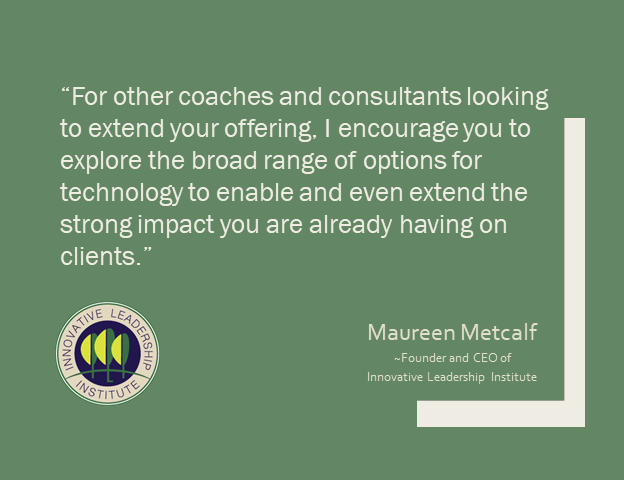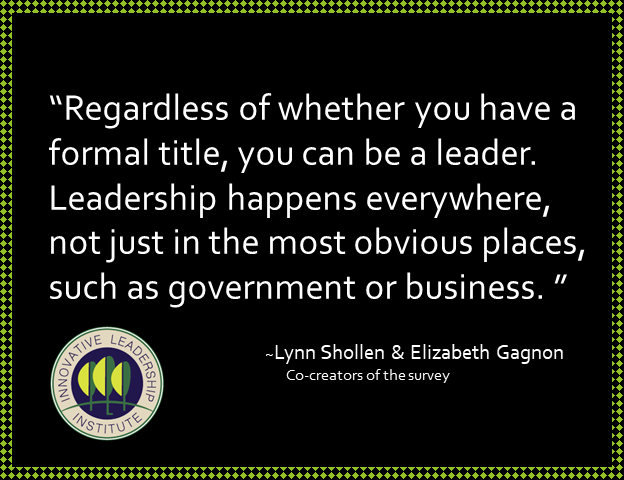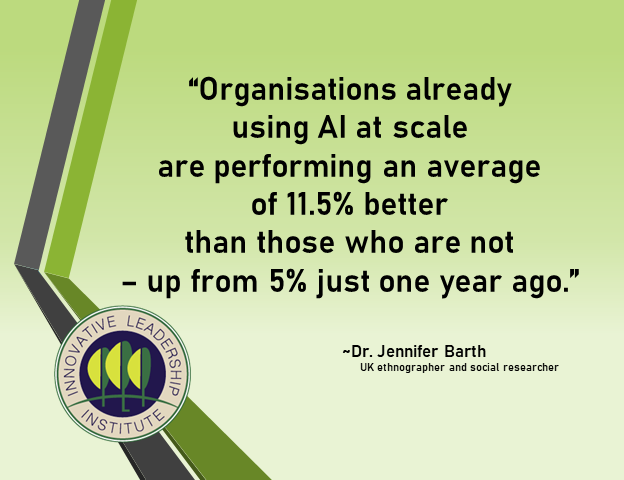Leveraging Technology To Improve Leadership Development
 This interview may be useful for those looking to use online platforms instead of in-person instruction. The following blog is a republish of an article in Forbes by Maureen Metcalf. It is a companion to the podcast Leveraging Online Kajabi Platform To Build Thriving Brands.
This interview may be useful for those looking to use online platforms instead of in-person instruction. The following blog is a republish of an article in Forbes by Maureen Metcalf. It is a companion to the podcast Leveraging Online Kajabi Platform To Build Thriving Brands.
As a university adjunct faculty member, consultant and coach, I have been using the tagline of “Innovative Leadership” for many years. This sets the bar for how I commit to my work as well as the services I deliver. I recently started to explore how I could refresh my use of technology to teach leadership in conjunction with coaching and workshops. I am looking for options to accelerate the leader’s learning process and offer a broad range of tools for different learning styles. I want to share my experience of how I am leveraging this technology to support leaders in their development.
I researched the many robust online delivery options and selected a tool that was a solid fit for my work: Kajabi. I selected it because of the strong technology platform, strong start-up support, cost-effectiveness, integrated payment and affiliate tracking modules and the ability to communicate with participants by product.
With the support of the online platform, I am rethinking what is possible. Right now, I am using the online training for the following three applications initially and I will expand these as we use the platform.
- We recently launched a 10-month IT leadership development program. This program was designed to build skills in the IT community in order to build the talent pipeline for senior roles. It will be delivered through monthly in-person sessions in conjunction with our local CIO forum. The online platform allows us to deliver training that integrates structured exercises, case studies and audio interviews with local CIOs and executives. One of the key objectives of the in-person sessions is to learn content and build a network. We expect the online element to significantly accelerate the building of leadership skills for mid- to senior-level IT professionals.
The online platform allows us to track payment and engagement with the materials. As the facilitator, this lets me manage the finances easily and also identify who is highly engaged so we can offer additional resources to enrich their experience. It also tells me who is less engaged so I can reach out and troubleshoot.
- We often augment our leadership coaching programs with a series of exercises designed to help participants build self-awareness, knowledge and skills. Especially for emerging leaders, we deliver a hybrid of training and coaching to prepare them to step into larger roles. For this group, we created a standard curriculum with exercises, case studies, audio interviews and videos. I can monitor client progress through the platform, and in this case, they share their progress prior to coaching sessions and discuss how their learning can improve their leadership work.
The online platform offers the option to package the leadership development curriculum by leadership level. I can sell packaged offerings of coaching and online training. It also gives the option to support affiliates so the other coaches and consultants in our organization work from a single platform with consistent processes and offerings.
- We offer online development programs as standalone offerings for individuals and companies to provide effective (and cost-effective) training for their emerging and current leaders. These programs can be combined with other programs the companies are conducting. Because this program is comprehensive and participants work through it over time, it provides the opportunity to internalize the learning, not just attend and depart.
The online platform allows us to customize materials for specific groups and tweak other courses where appropriate to reinforce and build on the in-person development investments they are making.
Another element we will be building into the platform that we are very excited about is an assessment that will be used by those taking courses, and it is also offered as a standalone service. Because an online platform can support a range of services, we are able to create a clean and user-friendly purchasing experience.
I have struggled for years to present a simple path for clients. Our company website is highly complex and positions us as a thought leadership and executive advisory firm. While that works for some audiences, it is inappropriate for others. Using Kajabi as our online platform and linking it to our main site and our book website, we can tailor the user experience to the target audience in a manner that is cost-effective for us and easy for the user.
I talk about the most effective leaders acting like scientists. This endeavor is one of my experiments. I did my homework and selected this platform. We are implementing several modules and we will continue to test and refine our experiment as we go along. For other coaches and consultants looking to extend your offering, I encourage you to explore the broad range of options for technology to enable and even extend the strong impact you are already having on clients.
About the Author
Maureen Metcalf, CEO of the Innovative Leadership Institute, is a renowned executive advisor, coach, consultant, author and speaker.

 This blog is provided by Lynn Shollen and Elizabeth Gagnon of Christopher Newport University in Newport News, Virginia. It is a description of the top-line findings of a survey about leadership that they conducted last year. You can read much more about the project
This blog is provided by Lynn Shollen and Elizabeth Gagnon of Christopher Newport University in Newport News, Virginia. It is a description of the top-line findings of a survey about leadership that they conducted last year. You can read much more about the project 